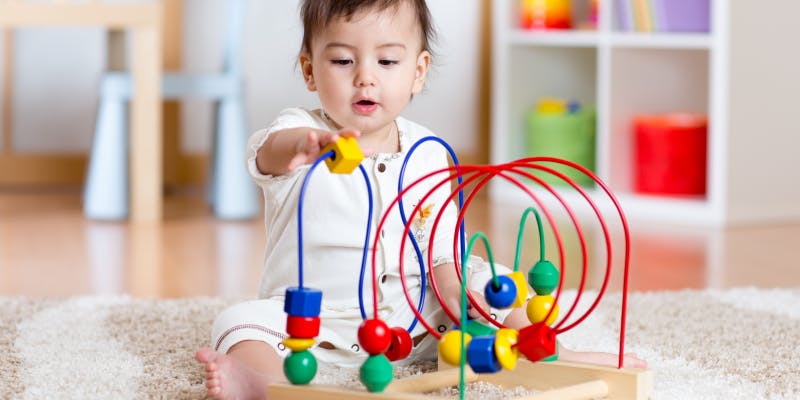Introduction
Children learn and grow through play, so it’s essential to allow them to play with educational toys. Playing helps children develop communication and social skills and prioritise shared attention between siblings or friends. There are many advantages to buying children’s educational toys – here are some of the top reasons:
Kids grow and develop naturally through play, so let them be kids.
Let’s face it: kids are naturally curious and want to learn about the world around them. They’re constantly asking questions and testing their boundaries, so when you allow them to do so through play, you’re helping them develop in a way that’s natural for their age group.
The best thing about the play is that it allows children to explore new things without worrying about getting something wrong or failing. It also helps children develop social skills by interacting with others (such as siblings or friends), strengthening relationships and encouraging empathy.
Playing helps children learn to share and take turns.
Playing with others is an integral part of learning to share. When you play with others, you have to be sure that everyone has the same amount of time to do what they want and be fair about it. Learning to take turns helps children become better at sharing with others.
Toys help build your child’s vocabulary.
Playing with children’s educational toys helps them build their vocabulary and better understand the world around them. By playing with educational toys, your child will learn about animals, vehicles, and many other objects in our everyday lives. These toys can help them learn how to communicate and interact with others.
They encourage independent play.
One of the best ways to develop your child’s cognitive skills is by providing open-ended toys that encourage imagination and creativity. These toys will also allow them to interact with others, teach problem-solving skills and help them develop physically.
It is essential to consider what age range the toy is intended for when buying them for children. This will ensure that they can use them correctly without getting frustrated or confused by a toy that is too complex for their abilities at any given moment.
Play helps with communication skills.
Play can help children learn how to communicate their needs and wants, share with others, negotiate with others, understand emotions and solve problems. Playing with other children helps them develop these skills by allowing them to have interactions that are more complex than those they would have with adults.
Children learn to solve problems when playing with toys.
Playing with toys can help children develop problem-solving skills. Toys allow the child to play and experiment, allowing them to try different ways of solving problems and figure out what works best. Many toys can help children develop problem-solving skills, including
· Legos. These blocks allow kids to build things independently and figure out how they work by taking them apart or pulling them apart as they build something else up again. If you have younger kids who aren’t ready for Legos, consider giving them magnetic tiles instead!
· Duplo – Larger than Legos but easier to manipulate (because they don’t come in small pieces); Duplo pieces are made of giant blocks that seamlessly fit into more enormous structures like houses or castles.
Playtime helps children understand their world better.
Play is an essential part of learning, and play can help kids grow and develop physically, mentally and emotionally. Play enables children to develop motor skills that will help them later in life (like crawling or walking), but it also allows them to learn about the world through exploration. Toys are a child’s work; they help kids learn more about themselves and their surroundings.
Conclusion
Overall, there are many reasons to buy educational toys for your kids. They help develop motor, social, cognitive, and language skills. They encourage creativity and imagination in your child, which will help them succeed as adults. And they can even help your child solve problems when playing with others or alone.




